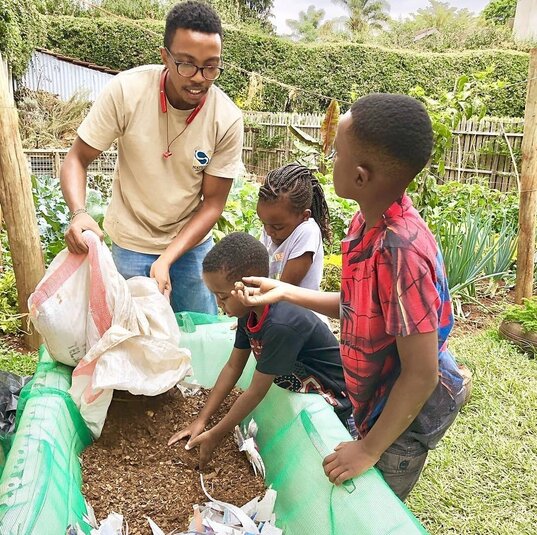
By George Munene
Bryan Kwena has carved a niche for himself as the go-to guy for anyone sourcing sesame in bulk from East Africa. Despite his company, Orgature Sesame Supply Limited, being based in Kenya, he's often forced to source the cereal from Uganda which incurs him an extra cost. But as he explains it; “You can't tell a client you just can't get what they need.”
Sesame, more commonly referred to as simsim by Kenyans, grows best in high temperatures of 26 to 30°C and demands very little water when growing (300-600 mm). This makes it one of the few ideal crops for semi-arid and arid farmers.
“It would be cheaper to source for sesame from local farmers (he often gets what little he can from farmers in Lamu), however, getting the crop in large quantities from Kenyan farmers is often unrealistic,” Bryan said.
Related News: New sesame hulling plant launched in Ethiopia to provide farmers with ready market
Imported agricultural goods are subject to import tax while additional costs are also incurred in freight charges as well as in loading and offloading.
Once Ugandan farmers/ brokers suss out that the buyer is Kenyan their quoted price immediately rises. There is also very little wiggle room in negotiations for Kenyan traders in neighboring markets.
“You’ll close a deal for white sesame only to have brown sesame delivered,” Bryan said in explaining some of the hazards in dealing with someone far removed from you.
Largescale food manufacturers similarly get most of their sesame from neighboring Somalia where the average annual rainfall is about 200 mm in most parts of the country and Ethiopia’s south-eastern and north-eastern lowlands where rainfall averages are less than 300 mm annually. These climatic conditions make the two countries ideal for intensive sesame farming.
Related News: Farmers growing Sesame (simsim) have a wide range of benefits
Related News: KEPHIS launches new high yielding fast maturing coconut variety for Coastal farmers
Unhulled white sesame, which is little grown and in demand is sold at Sh 210-220/ Kg compared to the more accessible brown sesame which costs Sh170-180.
Kwena works with local buyers and importers as far out as Israel as the global appetite for sesame seeds continues to grow owing to the increased inclination amongst consumers toward more healthy diets. Used to extract oil, and in the making of confectionery, cosmetics, medicines, and pet food, the global market in sesame is forecast to grow at a CAGR of 1.5% between 2020-2027 to $7.56 billion.
Bryan Kwena
Managing Director | CEO
Orgature Sesame Supply Limited
We source and supply Brown | White | Black Sesame
Contact:
+254702148381
+254202148381
This email address is being protected from spambots. You need JavaScript enabled to view it.
Write comment (0 Comments)

















